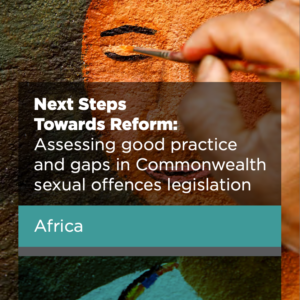Malawi’s sexual offences laws are in the Penal Code 1930 (PC), the Penal Code Amendment Act 2011 (PCA) and the Marriage, Divorce and Family Act 2015 (MDFA).
In 2006, Malawi enacted the Prevention of Domestic Violence Act and in 2013, the Gender Equality Act. However, it did not complement these important reforms with much-needed amendments to the sexual offences provisions in the PC. Most of the PC provisions assessed by this research do not meet good practice standards. For example, rape is limited to penile penetration of the vagina (‘unlawful carnal knowledge’). Other sexual assault offences are not gender-neutral. Rape and sexual assault in marriage is a crime only in very limited circumstances.
The child sexual assault offences are very limited and some are inappropriate (e.g. do not cover sexual grooming, sexual communication with a child, sexual assault by a person in a position of trust). Through the 2023 amendments to the Penal Code, Malawi raised the age of consent, for both girls and boys to eighteen years. This removed prior discriminatory provisions. Additionally, the 2017 Constitutional amendment to section 23 raised the age of marriage from fifteen years to eighteen years.
Through sections 139 and 139A of the Penal Code, Malawi criminalises sexual activity with individuals who have a mental disability. Section 139 states that any man who knowingly has or attempts to have sexual intercourse with a woman or girl with a mental disability, under circumstances not amounting to rape but where it is clear the offender knew of the disability, commits an offence and can be sentenced to life imprisonment. Similarly, section 139A applies to women, criminalising sexual intercourse or attempts with a man or boy with a mental disability under the same conditions, also punishable by life imprisonment.
The 2023 Penal Code Amendment Act saw to the removal of derogatory language and the introduction of “person with mental disability” (s139), including a definition. Section 13B defines a person with mental disability as someone with a mental disorder or impairment who, at the time of the offence, is unable to understand, resist, or communicate unwillingness to engage in a sexual act.
Malawi maintains the death penalty for rape which is contrary to good practice even though it has never been applied.
The Penal Code criminalises consensual same-sex sexual activity, such as ‘indecent practices’ between males and ‘gross indecency’ between females. The latter offence was introduced into the Penal Code in the latest amendments made in 2011. Laws that criminalise consensual same-sex sexual activity should be repealed and all non-consensual sexual acts, including anal ‘rape’, should be included in the general sexual assault provisions, such as ‘rape’ and ‘sexual assault’, as well as in child sexual offences. All of these crimes should be gender-neutral.
Malawi is a state party to relevant international and regional human rights treaties, including the Convention on the Elimination of All Forms of Discrimination against Women, Convention on the Rights of the Child, Convention on the Rights of Persons with Disabilities, Convention against Torture and Other Cruel, Inhuman or Degrading Treatment or Punishment, and the International Covenant on Civil and Political Rights. It is also a party to the African Charter on Human and Peoples’ Rights and the African Charter on Human and Peoples’ Rights on the Rights of Women in Africa (Maputo Protocol).
Read more about the criminalisation of LGBT people in Malawi.
The full assessment of Malawi is also available here.



